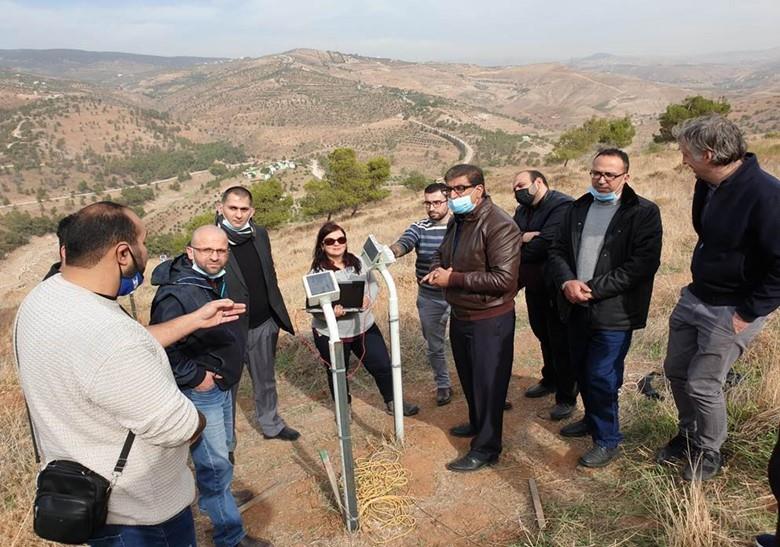Expanding the potential of olive orchard water productivity through knowledge sharing on tailored micro water harvesting design and monitoring

16 December 2021, FAO – the International Center for Agricultural Research the Dry Areas (ICARDA) and Jordan’s National Agricultural Research Center (NARC) hosted a training of trainers event to share experiences with Palestinian experts in olive orchard agriculture. The training took place on December 13 to 16, 2021, at the NARC headquarters in Jordan, and gathered 12 participants with the trainers. Seven Palestinian representatives from agricultural research and governmental institutions worked along three experts from Jordan. The focus was on demonstrating tailored in situ water harvesting solutions that simultaneously enhance yield and strengthen the entire agro-ecosystem’s resilience to degradation and climate change effects, and learning the installation of soil moisture sensing equipment, monitoring procedure and data interpretation.
Rainfed farming system are very sensitive to erratic rainfall and recurring drought conditions. Annual olive production is affected by climate variability and varies with the seasonal rainfall amounts and distribution. Moreover, unsustainably managed orchards are prone to degradation through droughts and extreme rainfall events. Micro water harvesting systems intercept and retain (extreme) surface runoff, and infiltrate and store the excess (water) in the soil. Well-tailored and adapted micro water harvesting systems synergize effects on reducing the impacts of climatic threats (both floods and droughts), strengthening the soils’ resilience to degradation through conserving soil health, and eventually boosting agricultural yields through storing and providing additional soil water.
ICARDA experts provided both theory and practices with the aim to prepare marginal drylands’ olive orchards for coping on water scarcity and mitigating degrading soils. ICARDA water harvesting expert, Dr. Theib Oweis recalled the NENA region rich experiences on in situ water harvesting systems, and provided guidance on tailored design and implementation that responds to the upcoming challenges. Dr Stefan Strohmeier and Dr Mira Haddad provided a hands on training on field level monitoring with the inspection of field characteristics, setting soil moisture sensing system in the field, reading, data analysis and interpretation. This training is the basis for practical field implementation in Palestine aiming to pilot and monitor rainfed olive orchard water productivity improvement.
This activity is implemented under the regional project “Implementing the 2030 Agenda for water efficiency/productivity and water sustainability in NENA countries” directly under the Regional Water Scarcity Initiative. This project is funded by the Swedish International Development Cooperation Agency.
